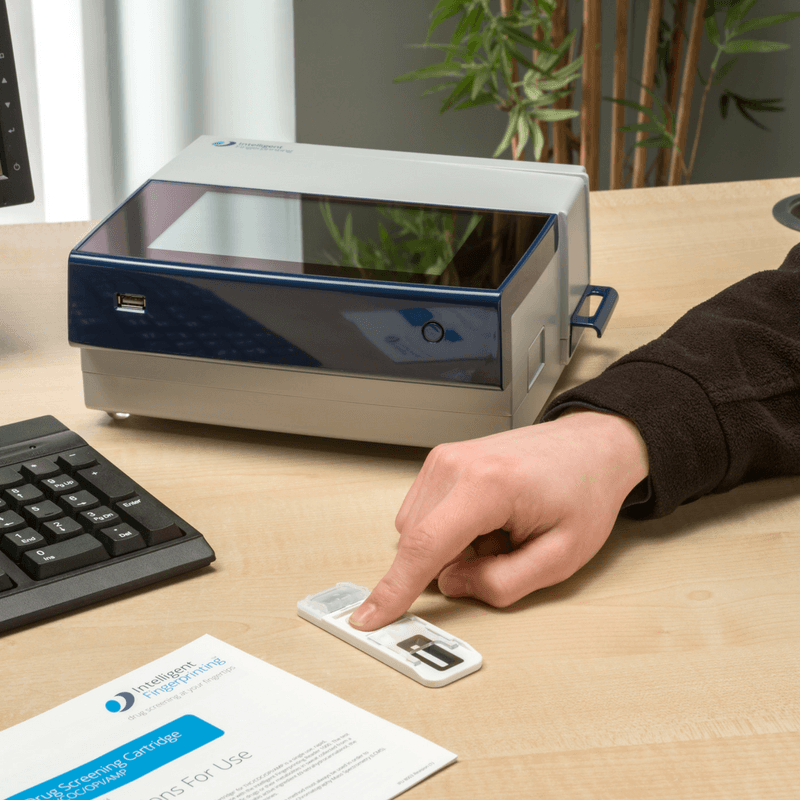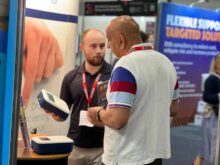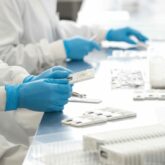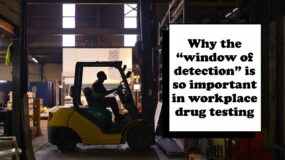Intelligent Fingerprinting features on BBC Inside Science
11.06.2018

Intelligent Fingerprinting features on BBC Inside Science
By Paul Yates, Intelligent Fingerprinting
It was great to hear BBC Radio 4’s Inside Science programme feature an interview last week with our Founder and Chief Scientific Officer, David Russell, Emeritus Professor of the School of Chemistry at the University of East Anglia (UEA).
It was David’s initial research at the UEA that revealed how it was possible to determine whether a person had taken specified substances – such as drugs of abuse – through the detection of metabolites in their fingerprint sweat sample. Drug metabolites are substances produced by the body when it processes (metabolises) drugs of abuse, and they are excreted in sweat. For Inside Science, David was interviewed by the BBC’s Dr Adam Rutherford to learn more about the science behind our revolutionary fingerprint drug testing approach, and also how the solution is already helping UK coroners.
Adam first asked about how the process works, with David explaining how the Intelligent Fingerprinting system is able to collect sweat from a fingerprint and, by analysing the metabolites in the sample, determine whether a person has taken one of four different drug types. Adam was particularly interested in how a fingerprint sample, which contains hardly any mass, can provide a big enough sample. Here, David pointed out how we’re able to pick up picogram levels of drug residue – that’s a trillionth of a gram in terms of weight measurement.
When asked whether the test was quantitative or merely indicates the presence of a drug, David highlighted how the Intelligent Fingerprinting device is able to determine if a sample is above or below specified thresholds for each drug in the test.
The BBC Inside Science interviewer asked if the fingerprint drug test can actually distinguish between a cocaine trace picked up innocently from a £20 note previously used for snorting cocaine, and a sample taken from an actual cocaine user. David explained how the Intelligent Fingerprinting test is able to collect both cocaine traces and actual cocaine use, as the test also detects benzoylecgonine (BZE) – the major metabolite of cocaine – that provides an assurance that the drug has been metabolised by the sample donor. Acknowledging this, the BBC’s Adam Rutherford discussed the potential to develop the test – describing it as ‘a bit like a breathalyser – but for four classes of illegal drugs’.
The discussion concluded with an explanation of how Intelligent Fingerprinting’s technology is now being used to support coroners in their work, with the test providing important recent drug use intelligence to help guide coroners and their staff.
And when Adam Richardson asked about false positives and how fingerprint technology compared to mass spectrometry in terms of accuracy for coroners, David outlined the results of the recent major study conducted with the Sheffield Coroner’s Office – saying it compared very favourably with blood toxicological data obtained from the same individual across the four drug types.
You can listen to David Russell’s full discussion with BBC Inside Science here, with the interview starting at 21.45.
To see fingerprint drug testing in action, watch our introductory video:



